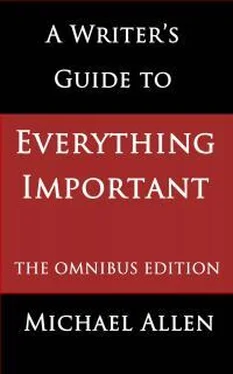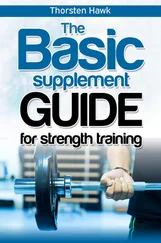4. If you are writing in the third person, are you going to provide ‘author comment’? Are you going to give the reader strong indications of how she should react to the characters and events, and provide unlimited amounts of background information? Or are you going to let the events speak for themselves, with the reader coming to her own conclusions about who is good or bad, right or wrong?
5. If you are writing in the first person, is that narrator going to try to influence the reader about who is good or bad, right or wrong? Or, again, is the reader going to be given a neutral, objective account of events, and be left to form her own conclusions?
6. If you are writing a first-person account, is that going to be a truthful account of what happened, or not?
7. Does a first-person narrator come to correct and sensible conclusions about what he observes? Or does he come to false (and perhaps comic) conclusions?
The answers to the questions listed above will often be implicit in the material that you have already developed. Nevertheless, it can sometimes help you to strengthen what material you have by thinking about some of these possibilities.
As for consistency in the use of one viewpoint – well, that is a matter of personal choice and taste. I myself make it something of a point of honour to stick rigorously to the selected viewpoint, at least within a particular chapter. Genette, on the other hand, argues that strict observance of this rule is unnecessary.
Will anyone complain if you do vary the viewpoint? Suppose, for example, you are writing a chapter from the major-character viewpoint, in the third person. If, for a paragraph or two, you forget to be consistent and suddenly tell the reader what a minor character is thinking – are your readers going to feel upset?
Probably not, is the honest answer. Most readers won’t even notice. At least, not consciously. I am inclined to think, however, that readers will notice such a shift of viewpoint unconsciously, and that is why I avoid it.
My advice is that you should choose, consciously and deliberately, to write each short story, or each chapter of a novel, from one particular viewpoint and then stick to it.
9. The ideal (?) viewpoint for a novel
There’s no such thing as the ideal viewpoint, of course. Depends on the circumstances. Nevertheless, I think it is true that a large proportion of the most popular books of our time are written in the third person throughout, but with each chapter being told from the viewpoint of a leading character. I think you will also find, if you count up, that in such books there are usually only three or four major characters through whose eyes the action is seen and related.
This is a point which is discussed at length in Al Zuckerman’s book Writing the Blockbuster Novel. And I really can’t recommend that book too highly. Al worked closely with Ken Follett, in particular, and turned him into a star; no one knows more than Al about how to put together a gripping story.
And a gripping story is, after all, at the very heart of a novel that works .
I certainly learnt a great deal from Al on this point, both through his book on narrative technique and when, on his various visits to London, he and I would liaise on a crime novel that I was then writing.
To give you a idea of how this system of viewpoints works in practice, you might care to look at the Appendices which follow almost immediately.
10. Practice makes perfect?
Viewpoint, more than any other aspect of narrative technique, demonstrates two important points.
One: a short story, and even more so a novel, does not miraculously become effective simply by depending upon inspiration. It requires conscious and careful thought.
Two: practice may or may not make perfect. But, speaking as a reader, I quite often come across novels by professional writers in which the viewpoint control is uncertain, and the novel is thereby weakened. Practice, based on the principles set out in this ebook, will certainly effect improvement.
APPENDICES
The Appendices provide example of the use of some well-defined viewpoints. These examples are drawn from my own novels and short stories.
The examples that I have selected are as follows:
The Rescue of Bertie’s Mummy – a short story told from the omniscient, third-person point of view, with a good deal of author comment, offered subjectively.
Topp Family Secrets – a novel written in chapters which are all main-character, third person, with minimal author comment.
Daphne before She Died – a novel using the main-character first-person viewpoint. The main character spends quite a lot of time analysing his own motives and the behaviour of other main characters.
How Young Albert Escaped from the 500 Harem Girls – a short story told from a minor-character viewpoint, in the first person. In fact, two first-person narrators are involved, both of them minor characters. And you don’t have to read very far to see that the first character you meet is not terribly bright.
APPENDIX 1:
The Rescue of Bertie’s Mummy
Michael Allen
It was Christmas Day in the workhouse. Which was how Sergeant Perkins liked to think of the nick. Or the police station, to use its proper designation.
It was a small nick in a small town, and everything was quiet. Which was how Sergeant Perkins wanted it. There had been considerable competition among the three eligible Sergeants as to which of them should actually be on duty on Christmas Day, so they’d drawn lots. And Sergeant Perkins had won. Success! He would be on duty from 8.00 a.m. to 4 p.m., and with a bit of luck could stretch it to half past four.
Success meant that he didn’t have to sit through the full Christmas dinner, with dried-up, overcooked turkey. More importantly he had an incontestable reason for not having to sit down with his wife and mother-in-law afterwards, to watch that video of The Sound of Music . Again.
No doubt about it. Sergeant Perkins was a lucky man. And he wasn’t really expecting much to happen. Not on Christmas Day. But when it did, he was ready for it. Oh yes.
The phone rang. And it turned out to be the two constables who were driving around the town in the one police car which was actually out and about in the whole area. Sergeant Perkins had never quite mastered all the skills of the digital age, and he much preferred it, when on duty, if his staff would communicate with him via technology that he understood. And a phone on his desk was one such.
‘We had a 999 call Sarge.’
‘Oh yes?’
‘From Fred. In the town square. He’s found a little boy.’ Fred was the town drunk.
‘Fred’s found a what?’
‘A kid. A nipper.’
‘But it’s only half past eight. Bit early for Fred.’
‘I know, but he was sleeping it off in Goffins doorway, and he was woke up by this little kid prodding him.’
‘Have you got this lad?’
‘Oh yes. He’s pressing all the buttons in the car, and squirming about on Moreton’s knee. Looks a bit cold. Hasn’t got coat on.’
‘No sign of Mum or Dad?’
‘No. Not so much as a stray dog.’
‘Oh, all right then. I suppose you’d better bring him in.’
Now already, even at this point, a little scheme was developing in Sergeant Perkins’s mind. It so happened that one of the inhabitants of the small town in which this lost child had appeared was a young lady named Emily. She worked for the local evening paper. Well, actually it was the evening paper in a larger town ten miles away, but it passed for a local rag. And Emily was ambitious. So ambitious that, on a recent visit to London, she had got herself appointed as the semi-official local reporter for the Sun. Actually, when she had first presented herself to the duty news editor for that day, he had assumed, on account of the fairly sensational bosom which was generously exposed for his benefit, that Emily was seeking an audition for page 3. But she wasn’t. No. Emily really did want to be a Fleet Street reporter. Well, in so far as Fleet Street still existed, she did. And by dint of giving the impression that, if she were to be appointed, Emily would offer the news editor free use of her body, Emily had succeeded in coming to an unofficial but potentially beneficial (to both parties) sort of arrangement. Come up with the right stuff, darling, the editor had said, and we will see you all right. And come up with enough of the right stuff, on a regular basis, and Fleet Street will queue up to lick your boots. Or some approximation thereof.
Читать дальше












